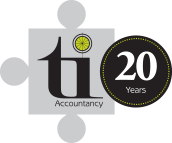Part of our internal process system is to ask for feedback when a client leaves.
We stress that it isn’t for us to make excuses but it is to help improve our customer service for future clients.
To make this effective when a client replies I have to be very mindful not to get defensive and to have an open mind to use what they say in a way of improving the company.
This week I got an email that put my system to the test.
We lost a sole trader self-assessment tax return client who had brought their paperwork into us in December, we’d provided her with the tax return within two weeks and submitted once she’d paid well before the January deadline.
When asking why she had left she informed us that she was going to another accountant because “her tax was too high”!!
This, for me, has to be the most ridiculous reason to move that I have ever heard and at first I really struggled not to be defensive.
Some people think that it is up to the accountant to determine how much tax a client pays!!
After sitting and thinking about it for a while I realised that to improve our customer service we must educate our clients to understand that it is a system we follow that and it the government and HMRC that determine how much tax a person pays (or VAT that a business pays, as yes I’ve also had someone accuse me of making their VAT too high).
Now I may have misunderstood her comment and she meant that I hadn’t helped her lower her tax, as she was on the cusp of being better off as a limited company (we had sent a spreadsheet to show her how much tax she would have paid as a limited company against what she did pay as a sole trader).
We do have clients that we help on a monthly basis where we can ensure they will pay the least amount of tax by checking their accounts monthly and giving advice, however, when someone brings in their entire previous year to us 9 months after the year end then it would be impossible for any accountant to lower their tax as we cannot advise on something so historical.
The fact that we did send this lady the details showing the difference between the tax she was paying as a sole trader and the amount she would pay if she choose to be a limited company is the extent to which we can help.
However, if she had continued to trade at the same rate since April 2017 she was already 8 months into her current finance year so was again too late.
As we are primarily a bookkeeping business we strive to help business on a much more regular basis to give them better business advice and it’s been frustrating that the amount of tax this client was paying was obviously so important to her she felt compelled to move to another accountant, who will in turn give exactly the same service if she also gives them her entire years accounts in December this year.
So how could an accountant help you lower your tax?
Now I don’t think that paying the least amount of tax possible is always the best strategy for a business if you’re concentrating on just lowering net profit as this may hinder you getting loans or mortgages in the future.
Having said that, making sure you are on the correct VAT Scheme and the right financial entity are vitally important.
The only way to ensure your accountant can keep you up to date on this is to make sure that your bookkeeping is up to date on a regular basis and then your accountant can monitor this to make sure you’re on the correct VAT scheme and you are the correct entity for your businesses net profit.
How often do you give your accountant the opportunity to assess your business?




